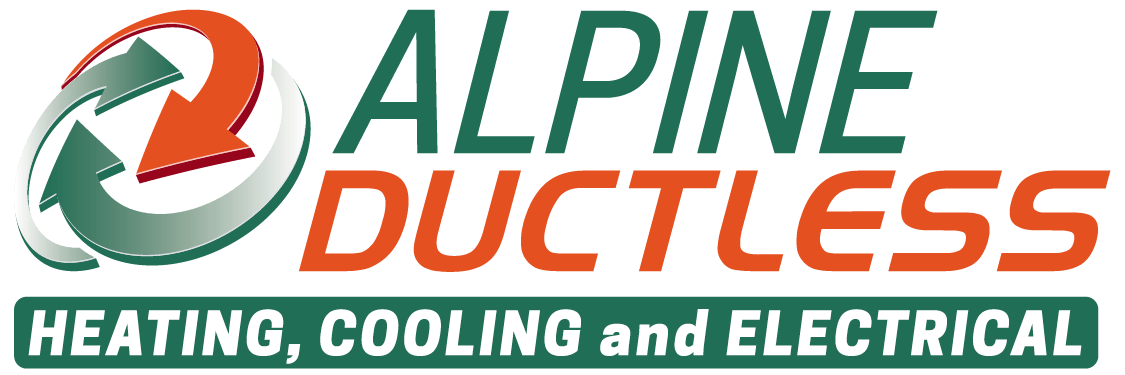In the United States, most homeowners still use oil furnaces and forced air to produce heat during the cold seasons. This uses natural resources and has been deemed detrimental to the environment. An affordable and eco-friendly alternative is the electric heat pump. Ductless heat pumps (otherwise known as mini-splits) use electricity rather than gas or oil. This brings us to the question, “what is ductless heating?”
It’s important to have our customers know how a Ductless Heat Pump works and why they would choose it over an alternative heating system. We’ve summarized Hear and Now radio broadcast here as it was one of the best resources we’ve found to help explain this technology.
How Does a Ductless Heat Pump Work?
A ductless heat pump system (otherwise known as a mini-split) is made up of one or more individual room units and an outdoor compressor. Each indoor unit is connected to the outdoor compressor via a conduit (or cable) that transfer electricity, signals, and refrigerant.
An indoor unit is made up of a fan, filter, and evaporator coils. Refrigerant is what heats or cools the evaporator coils within each of the indoor units that ultimately then heats or cools the air.
For example, in warm weather, warm air from the room blows over your unit and is absorbed by the evaporator coils. From there, the refrigerant transfers all of the heat from that air to the outdoor unit. Thus, the air that’s circulated back into your room is cooler.
On the other hand, in cool weather, cold air circulates into your ductless unit where it is warmed by the evaporator coil’s refrigerant. The air that is then circulated back into your room is warmer.
Value vs. Cost
Replacing your home heating system is an investment like any home improvement, but it’s affordable and saves money in the long run. Forced air heating has an ongoing fee associated with it – the cost of fuel. If your home uses central air, it’s already equipped for a ductless heat pump. If not, it could cost upwards of $14,000 to install it. Installation fees vary depending on home size. Fortunately, the ductless heating system isn’t nearly as much if you already have central air.
Air conditioning units don’t last forever. This opens the door to potential upgrades. Ductless heating provides two methods of temperature control with no added cost. Simply install the ductless heater instead of a new AC unit, and the heater will heat and cool your home at whim. If you don’t have air conditioning, investing in a ductless heater helps two-fold. It provides a new method of heating your home and the bonus of AC.
Less Risk to the Environment
There’s also the environment to consider when heating your home. Not only do oil furnaces burn fossil fuels to operate, but they also emit damaging fumes into the atmosphere. Oil or propane will expel approximately 50lbs of CO2 into the air on a 35-degree day while the heat runs. Instead, you could be using a mere 20 or so units of electrical energy to run your heater with half of the CO2.
Due to these points, we’re already seeing a big change in the way Americans heat their homes. Ductless heating contractors in Olympia, WA are upgrading more and more houses to fit these eco-friendly heating conditions.
Choosing the Right Contractor
With years of experience and roots right here in Olympia, WA, the team at Alpine Ductless is here for all your heating and cooling needs. Our master installers are experts in their field, installing unparalleled comfort with Ductless Heating and Cooling Systems in Mason County including Shelton, Union and Allyn-Grapeview!
If you’re interested in learning more about ductless heating, contact Alpine Ductless today. We’re always happy to answer questions and chat with new and existing customers.
Plus you can visit our Ultimate Guide to Ductless Heating & Cooling in the Northwest for more answers on the benefits of Ductless systems.
